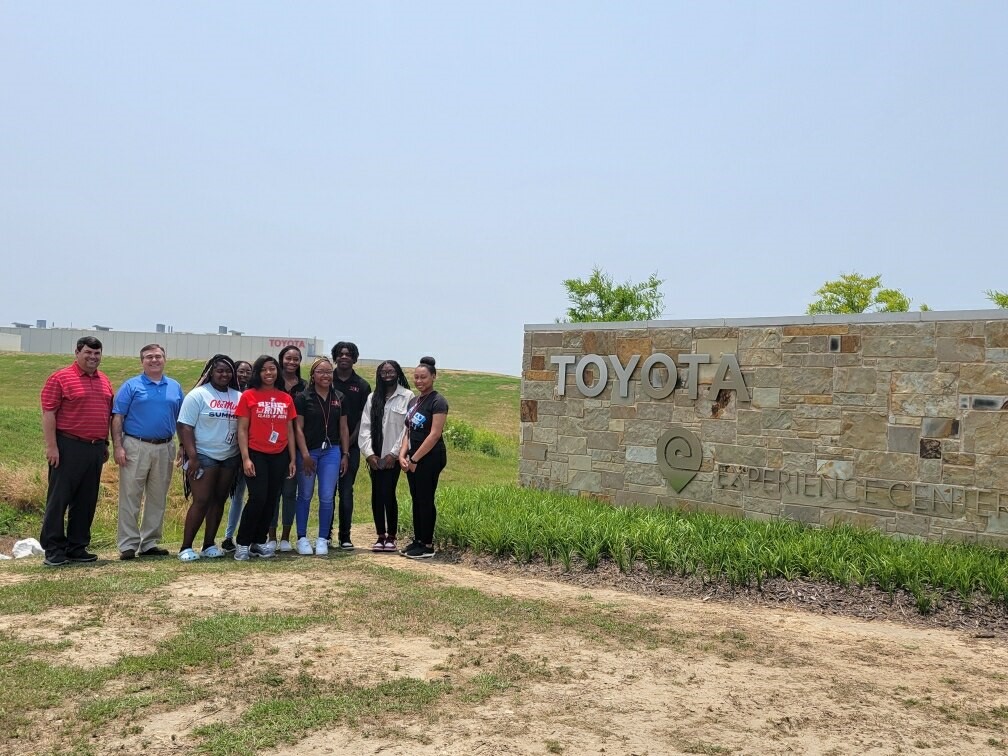Featured
Mississippi High School Students Study Leadership, Community at UM

By Clara Turnage
Eight Mississippi high school students are studying ways to help their communities this summer as a part of the University of Mississippi Summer College for High School Students program, “Building Community Change in the Mississippi Delta.”
The program, led by the Office of Pre-College Programs, the College of Liberal Arts and the Grisham-McLean Institute for Public Service and Community Engagement, took students to several towns across north Mississippi in June to study inequity, community problems and how to make change.
“Our mission is to fight poverty through education, innovation and entrepreneurship, and we know that attaining higher education is a very significant lever of economic mobility,” said Laura Martin, associate director of the institute. “It’s giving the students a lexicon to unveil some of the injustices they’ve seen in society at large or closer to home and giving them the tools to talk about solutions.
“It’s about both individual life opportunity and social change.”
The students earned six college credit hours in sociology and community engaged leadership and spent time talking to community and business leaders in Pontotoc, Ecru, Blue Springs and New Albany. In each city, the students focused on a different aspect of community engagement, including work and the economy, health and medicine, and race, gender and sexuality.
“This class is preparing them for some of the concepts of sociology and we are working with them on presentations right now that tie into issues that are important to them,” said J.R. Love, project manager for the institute. “They’re seeing how these sociological frameworks, theories and concepts can guide some of their decision-making about the challenges they face in their own communities and in their own personal lives.”
The class included:
- D’Kyra White, of Cleveland
- Jalayla Johnson, Shelby
- Jonerial Taylor, Oakland
- Krystyn Sumlin, Oakland,
- Lamaris Balford, Calhoun City
- Victoria Walker, Cleveland
- Yishunti Curtis, Coffeeville
- Zyon Polk, Coffeeville
Castel Sweet, director of community engagement and assistant professor of practice in community engagement, taught the community-engaged leadership course. Sweet pushed the students to consider difficult social problems such as homelessness, mental health issues, crime, poverty and inequity.
“We think about most of our leaders who created these massive social movements – particularly those in Mississippi who pushed the boundaries of what’s possible – and it started with kids, people who are similar ages of these students,” Sweet said. “They got together and vocalized.
“Getting them to see value in their own perspective of what’s needed based upon their experience, that was really important to this class.”
At the conclusion of their course, each student created and presented a project concept to classmates and a selection of guests in Lamar Hall. As a part of their presentation, students identified what kind of leader they can be, how they define community, what social issue they’d like to tackle and what they plan to do to help their hometown.
In her presentation, Sumlin spoke on the need for better mental health services in rural communities like her hometown of Oakland.
“At the beginning of this class, we were asked to do research for a community project,” she said. “But I already knew what I wanted to do for my community, for this state and for the world.”
Sumlin proposed a smartphone app that would help people in rural communities access mental health care and increase awareness of mental health issues.
“There are so many social issues that need to be resolved,” Sumlin said. “As a student, it’s hard watching all of this and not always knowing what you can do.”
High school students can see injustices and social issues in the world, but aren’t always given an opportunity to solve them, Sweet said. This class was designed to give them those answers.
“The more we provide them with the space to envision the possibilities, the more likely they are to try those possibilities,” Sweet said. “If we don’t limit them on our own assumptions, we can provide them with an opportunity to prove us wrong and to surprise us.”






















































